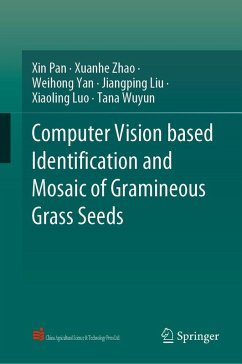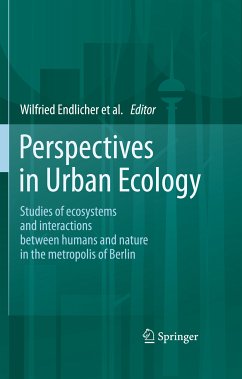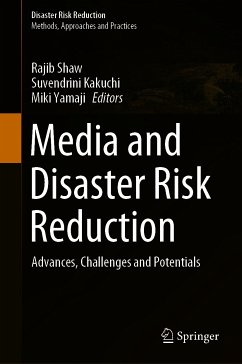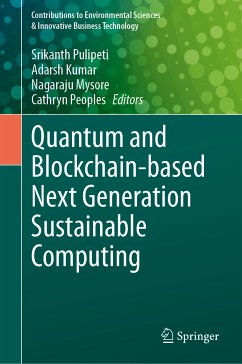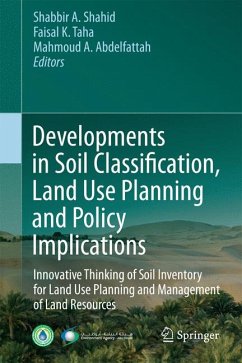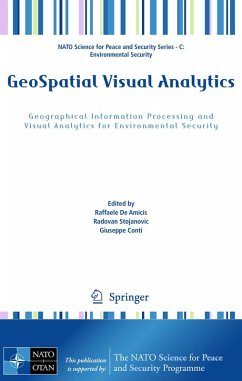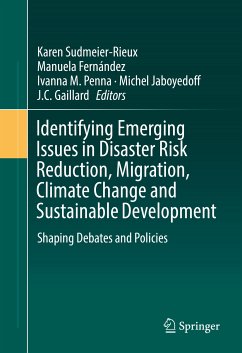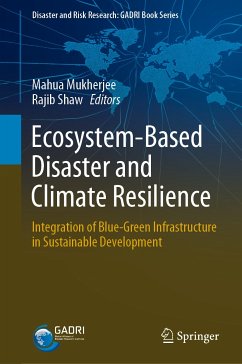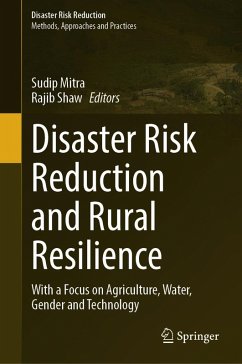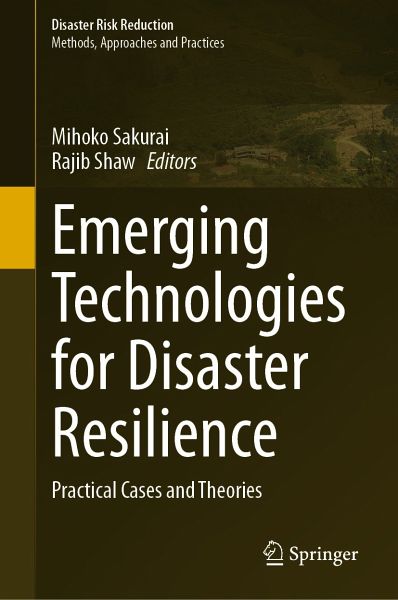
Emerging Technologies for Disaster Resilience (eBook, PDF)
Practical Cases and Theories
Redaktion: Sakurai, Mihoko; Shaw, Rajib
Versandkostenfrei!
Sofort per Download lieferbar
112,95 €
inkl. MwSt.
Weitere Ausgaben:

PAYBACK Punkte
56 °P sammeln!
Technological advances have helped to enhance disaster resilience through better risk reduction, response, mitigation, rehabilitation and reconstruction. In former times, it was local and traditional knowledge that was mainly relied upon for disaster risk reduction. Much of this local knowledge is still valid in today's world, even though possibly in different forms and contexts, and local knowledge remains a shared part of life within the communities. In contrast, with the advent of science and technology, scientists and engineers have become owners of advanced technologies, which have contri...
Technological advances have helped to enhance disaster resilience through better risk reduction, response, mitigation, rehabilitation and reconstruction. In former times, it was local and traditional knowledge that was mainly relied upon for disaster risk reduction. Much of this local knowledge is still valid in today's world, even though possibly in different forms and contexts, and local knowledge remains a shared part of life within the communities. In contrast, with the advent of science and technology, scientists and engineers have become owners of advanced technologies, which have contributed significantly to reducing disaster risks across the globe.
This book analyses emerging technologies and their effects in enhancing disaster resilience. It also evaluates the gaps, challenges, capacities required and the way forward for future disaster management. A wide variety of technologies are addressed, focusing specifically on new technologies such as cyber physicalsystems, geotechnology, drone, and virtual reality (VR)/ augmented reality (AR). Other sets of emerging advanced technologies including an early warning system and a decision support system are also reported on. Moreover, the book provides a variety of discussions regarding information management, communication, and community resilience at the time of a disaster. This book's coverage of different aspects of new technologies makes it a valuable resource for students, researchers, academics, policymakers, and development practitioners.
This book analyses emerging technologies and their effects in enhancing disaster resilience. It also evaluates the gaps, challenges, capacities required and the way forward for future disaster management. A wide variety of technologies are addressed, focusing specifically on new technologies such as cyber physicalsystems, geotechnology, drone, and virtual reality (VR)/ augmented reality (AR). Other sets of emerging advanced technologies including an early warning system and a decision support system are also reported on. Moreover, the book provides a variety of discussions regarding information management, communication, and community resilience at the time of a disaster. This book's coverage of different aspects of new technologies makes it a valuable resource for students, researchers, academics, policymakers, and development practitioners.
Dieser Download kann aus rechtlichen Gründen nur mit Rechnungsadresse in A, B, BG, CY, CZ, D, DK, EW, E, FIN, F, GR, HR, H, IRL, I, LT, L, LR, M, NL, PL, P, R, S, SLO, SK ausgeliefert werden.



